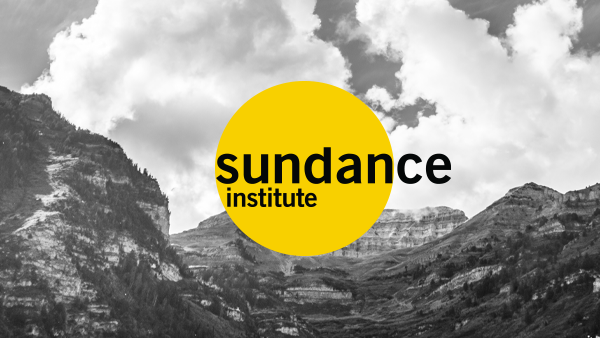Los Angeles, CA–Sundance Institute today announced the Documentary Film Program grant recipients for the Spring 2010 round. Eighteen feature-length documentary films, chosen from 750 filmmakers in 111 countries, will receive a total of $500,000 in support. In addition to financial assistance, all of the filmmakers are eligible for a range of year-round creative support services from Sundance Institute, including Creative Labs, Work-in-Progress screenings, and documentary activity at the Sundance Creative Producing Summit and Sundance Film Festival.
Selected filmmakers follow international stories ranging from young leaders in South Africa’s Shack Dweller’s Movement to the presidential campaign that might change the future of politics in Colombia, to the moving story of a Palestinian and an Israeli who form the bonds of friendship. U.S. stories follow former gang members fighting violence in Chicago, undocumented immigrants facing life and death in Arizona’s desert, inner city Philadelphia girls taking pride in their urban soccer team, and Detroit residents fighting to bring their city back to life.
“Sundance Institute salutes the filmmakers from 111 countries who submitted proposals in this round; we had an incredibly high quality applicant pool,” said Cara Mertes, Director of the Sundance Institute Documentary Film Program. “The result is a new resurgence of nonfiction filmmaking on the world stage, and we look forward to welcoming the new grantees into the fold.”
The Sundance Institute Documentary Fund is a core activity of Sundance Institute’s Documentary Film Program, which provides year-round creative support to nonfiction filmmakers globally. Proposals are accepted twice a year, and submissions are judged on their approach to storytelling, artistic treatment and innovation, subject relevance and potential for social engagement. Sundance Institute considers projects in the Development, Production/Post-Production and Audience Engagement phases. The film selection is juried by creative film professionals and human rights experts. The next postmarked deadline is July 7, 2010. Please visit www.sundance.org/documentary or www.sundance.org/DocSource for more information.
DEVELOPMENT
Detroit Hustles Harder
Heidi Ewing and Rachel Grady (U.S.)
Can Motor City rise from its ashes? There is a growing feeling that as Detroit goes, so goes the nation. This film tells the dramatic story of a city and its most innovative people who refuse to leave the building, even as the flames are rising.
Politics Not as Usual
Margarita Martinez (Colombia)
Antanas Mockus goes on the campaign trail in a bid for the Colombian presidency. Mockus’ candidacy is a grassroots, socially networked movement of a new kind, and his campaign may hold keys to the future of South American politics.
The Path (wt)
Senain Kheshgi (U.S.)
In a coming-of-age story, a Pakistani teenage girl grows up during one of the most violent times in her country’s history.
PRODUCTION AND POST-PRODUCTION
The Anderson Monarchs
Eugene Martin (U.S.)
Girls at an inner-city soccer club transcend race, poverty, crime and stereotypes to successfully play the game they love.
Better This World
Katie Galloway and Kelly Duane de la Vega (U.S.)
Two childhood friends from Midland, Texas set out to prove the strength of their political convictions to themselves and their mentor: a revolutionary activist turned FBI informant.
Dear Mandela
Dara Kell and Christopher Nizza (U.S. / South Africa)
In the year leading up to the 2010 Soccer World Cup, three young leaders in South Africa’s Shack Dwellers Movement resist mass eviction while putting Nelson Mandela’s promise of a ‘better life for all’ to the test.
Donor 150
Jerry Rothwell (U.K.)
The filmmaker weaves together a twenty-first century tale of identity and genetic inheritance to reveal what may perhaps be the family of the future.
Girl Model (working title)
Ashley Sabin and David Redmon (U.S.)
First-hand accounts of the modeling industry by scouts, agencies and a 13-year-old model reveal a complex supply chain between Siberia and Japan.
Granito
Pamela Yates (U.S.)
A classic documentary film deeply intertwined with Guatemala’s turbulent history is revisited decades later, and proves to be a crucial player in a present-day case against genocide.
Pit No. 8
Marianna Kaat (Estonia / Ukraine)
Set in the heart of a once-thriving Ukrainian coal mining region now overcome with poverty, the film is a timely portrait of parents and teenagers trying to earn a living in abandoned coal pits.
Shenandoah, PA
David Turnley (U.S.)
In Shenandoah, Pennsylvania, four of the town’s star, white football players are charged with beating to death Luis Ramirez, an undocumented Mexican immigrant. A Pulitzer Prize-winning photographer turns his eye towards creating a deeply felt portrait of a community on trial.
The Interrupters
Steve James (U.S.)
Using an innovative approach to breaking cycles of violence in inner cities, former gang leaders and ex-cons in Chicago’s toughest neighborhoods take a stand to “interrupt” shootings and protect their communities from the violence they themselves once employed.
The Law In These Parts
Ra’anan Alexandrowicz (Israel)
Using interviews, archival footage and deep historical research, this film explores the formal legal mechanisms of Israel’s forty year military occupation of the West Bank and Gaza.
The Mosuo Sisters
Marlo Poras and Yu Ying Wu Chou (U.S. / China)
When they lose the only jobs they’ve ever known, two spirited daughters from China’s last remaining matrilineal ethnic minority are thrust into the worldwide economic downturn.
The Undocumented
Marco Williams (U.S.)
The skyrocketing number of deaths of illegal immigrants along the Arizona border is viewed through multiple prisms in light of the state’s proposed new immigration law.
Turkey Creek
Leah Mahan (U.S.)
Settled by emancipated slaves in the 1860s, Turkey Creek is surrounded today by an airport, a Wal-Mart, two highways and an industrial canal that threaten the historic Mississippi community and its fragile wetlands. When the twin disasters of Hurricane Katrina and the BP spill devastate the Gulf Coast, residents join with other endangered coastal communities in the fight of their lives—and for a sustainable future for us all.
Within the Eye of the Storm
Shelley Hermon (Israel)
After Bassam, a Palestinian, and Rami, an Israeli, each experience personal tragedy, the two men turn from enemies to brothers.
DISCRETIONARY
Losing Sacred Ground
Christopher McLeod (U.S.)
Losing Sacred Ground tells from the perspective of indigenous elders and activists eight compelling stories of indigenous people resisting the destruction of their culture and lands, and explores climate change, biodiversity loss and sacred site destruction.
Sundance Institute’s Documentary Film Program is made possible by generous support from The Ford Foundation, Open Society Institute, the Skoll Foundation, The Charles Engelhard Foundation, Cinereach, the MacArthur Foundation, the S.J. and Jessie E. Quinney Foundation, the Woodruff Charitable Memorial Trust and the Bastian Foundation. Sundance Institute also gratefully acknowledges the generous assistance provided by the following organizations: Alesis Corporation, Apple Computer, Avid Technology, Inc., Hewlett-Packard Company, HP Marketing, JBL Professional, LaCie Limited, Mackie, Mark of the Unicorn, Sony Business and Professional Products, Sony Media, Sony SXRD and Soundcraft.
Sundance Institute Documentary Film Program
The Sundance Institute Documentary Film Program is dedicated to supporting U.S. and international feature documentary films that focus on current human rights issues, social justice, civil liberties, and other contemporary issues. Since 1996, the Sundance Documentary Fund has supported more than 450 artists in 52 countries, providing a continuum of support throughout the life of a project. Films supported by the Fund have received widespread distribution to their intended audiences via broadcast and theatrical release, and many have garnered a number of awards and exceptional industry recognition. Films have included My Country, My Country; Iraq In Fragments; Why We Fight; The Inner Tour; The Betrayal (Nerakhoon); and Traces of the Trade. Please visit www.sundance.org/documentary or www.sundance.org/DocSource for more information.
Sundance Institute
Founded by Robert Redford in 1981, Sundance Institute is a not-for-profit organization that fosters the development of original storytelling in film and theatre, and presents the annual Sundance Film Festival. Internationally recognized for its artistic development programs for directors, screenwriters, producers, film composers, playwrights and theatre artists, Sundance Institute has nurtured such projects as Angels in America, Spring Awakening, Boys Don’t Cry, Sin Nombre, Born into Brothels and Trouble the Water.




